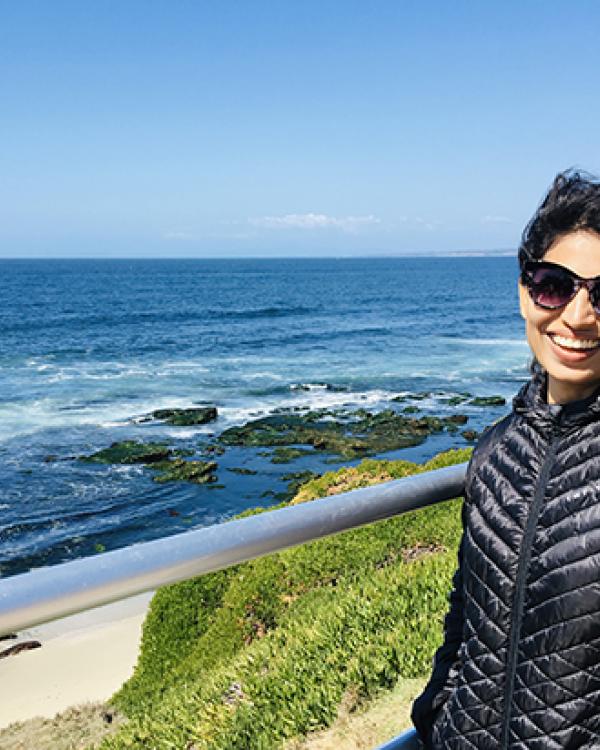
Sabiha Sultana is a first-year doctoral student in the Department of Education focusing her research in critical reading assessments under the guidance of Dr. Diana J. Arya and Dr. Andrew Maul. She earned her B.Ed. (Honors) from University of Dhaka in Language Education. She later received her M.Ed. in Bilingual/English as a Second Language/Multicultural concentration from University of Massachusetts, Amherst as a Fulbright scholar. Being an education civil servant, she served as a faculty member of education at government teachers’ training colleges and at the education team of the prime minister’s office in Bangladesh. As a graduate student, Sabiha is currently working as the assessment coordinator at Community Based Literacies to contribute to the development of a more culturally inclusive and relevant assessment approach that will benefit school communities and the children that they serve. Her research interests encompass educational assessments; Multiliteracies; ESL/EFL; critical media literacy; technology embedded curriculum and instructions; multimodal pedagogies for language teaching-learning; and teachers' professional development.
GGSE: How have you been spending time during the pandemic?
Sultana: During the pandemic, I worked from my home in Bangladesh. I taught undergraduate students online using Zoom for the first time and learned something new every moment while trying to balance between my students’ emotional well-being and curriculum goals. Additionally, as a civil servant of the ministry of education, I worked on the education team that responded to the emergency shutdown of educational institutions in March 2020. I had to be innovative to mitigate the educational challenges in my country at that time so that we could ensure accessibility and quality education for all. I had to gather new knowledge and skills every day. For instance, the health sector was our first priority at that moment, and we needed more health professionals during the pandemic. So, for the first time, I was working on developing an e-learning course for our health professionals with the collaboration of the nursing council, WHO, and Johns Hopkins University. Moreover, I completed the first quarter of my Ph.D. program online residing in a totally different time zone in my home country. It was the biggest challenge of my life!
GGSE: What piece of wisdom would you like to pass on from your time working in Bangladesh?
Sultana: I would like to pass on the following pieces of wisdom from my time working in Bangladesh.
- Reach millions of students from diverse contexts of accessibilities and readiness including the poor and marginalized and those disproportionately hit by cascading crises.
- Prepare teachers for social-emotional, technological, and pedagogical content knowledge through bottom-up, teacher-driven initiatives so that they themselves become adaptive life-long learners and teach students using emerging modalities.
- Prepare teachers to embrace the ideology of diverse abilities and to debunk the myth of standard, “correct/incorrect” answers while they are assessing students for learning.
- Empower culturally, linguistically, and economically marginalized groups and women through their own innovation and entrepreneurial skills.
- Ensure international collaboration and substantial united synchronization at the public, private, for-profit and nonprofit level to reduce critical gaps to reach the unreached.
GGSE: What made you decide to study educational assessments?
Sultana: I had little opportunity to engage in reading enrichment activities in my childhood. I was taught that I need to memorize everything that I read and there is always an expected, correct, standard answer for whatever question I am asked about the text. So, I struggled to memorize the so-called standard answers because my own perspective or interpretation was not counted as valid even though some questions were open-ended. Once I started working at the college of education at University of Massachusetts, I realized how our education system made us teach just to the tests, disregarding the overarching goal of learning through assessment. So, this dilemma made me interested in assessments. I want to change the ideology of standard answers. I am interested in how children can question what they read and not believe everything that they read and how reading is more about developing their own critical socio-political perspective.
Our team, which consists of Dr. Diana J. Arya, Dr. Andrew Maul, Daniel Katz, Somer Levine, and undergraduate research assistants, are focused on developing a culturally inclusive, online-accessible reading assessment designed to gauge students’ comprehension and critical reading agency of multimodal texts. We are in the first phase of a larger longitudinal study that traces the theorizing, planning, development, and revision of what we are currently calling the Critical Reading Assessment (CRA). Our work aligns in part with the 2026 Reading Assessment framework for the National Assessment of Educational Progress (NAEP); this new framework emphasizes a sociocultural model of reading that supports equity, diversity, multilingualism, and inclusion. Further, we aim to assist researchers, educators, policymakers, and practitioners in using our developing assessment for informing instructional practice. Our multidisciplinary, multilingual, and multicultural team is taking a bottom-up approach where the practitioners, assessors, and beneficiaries voices are tied with the development process of assessment. In the near future, we hope to make our CRA freely available to teachers and educational leaders who are tasked to raise critical readers and we will continue to revise this tool and associated texts based on ongoing input from stakeholders.
GGSE: Who, living or dead, do you most admire?
Sultana: The person I admire the most is the late Brazilian educator and philosopher Paulo Freire. I admire his view of education and advocacy of critical pedagogy, which became influential in the critical pedagogy movement across the globe. I was fascinated by his idea of critical pedagogy that made me rethink and work on redesigning the formative assessments in my country.